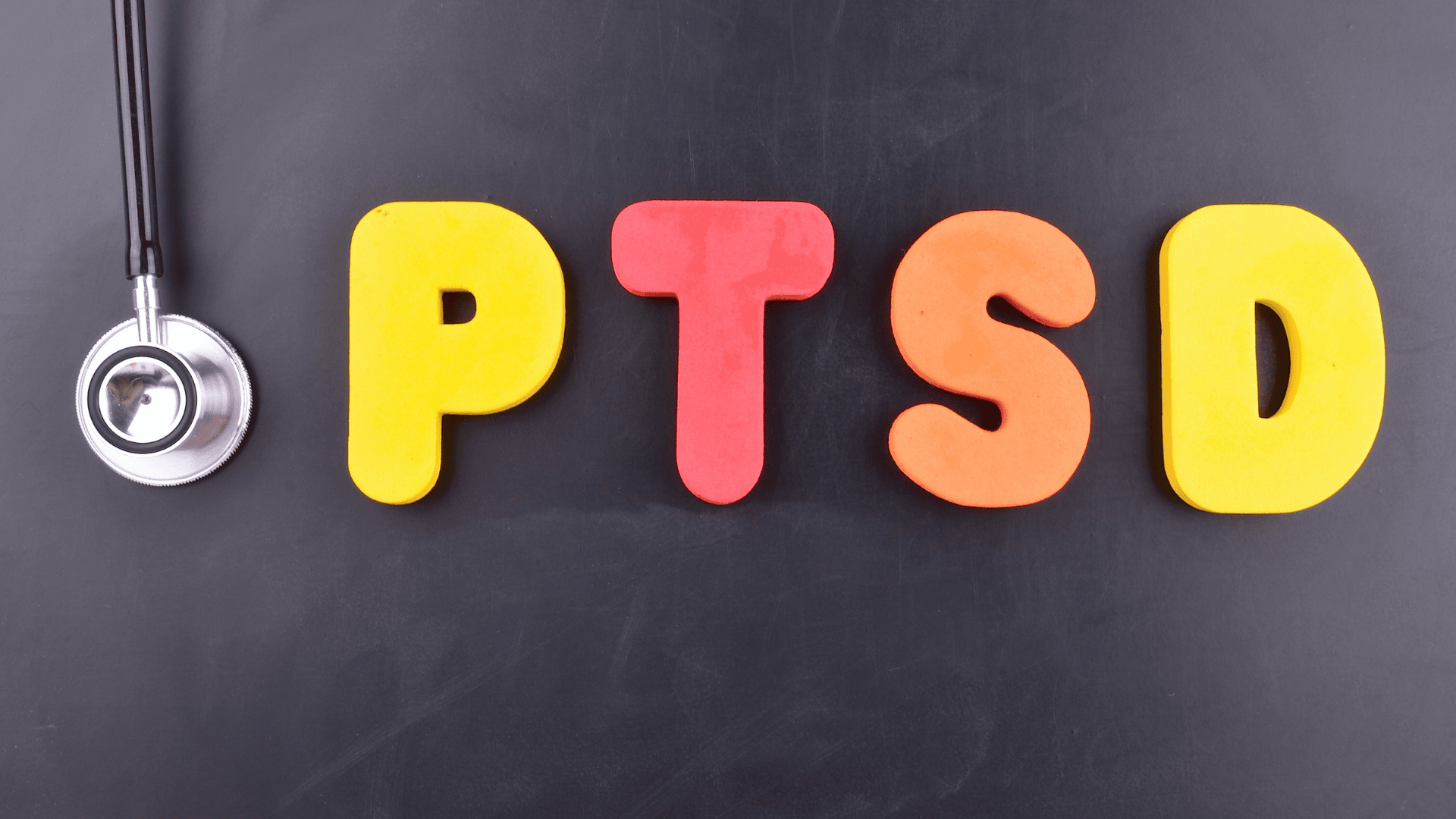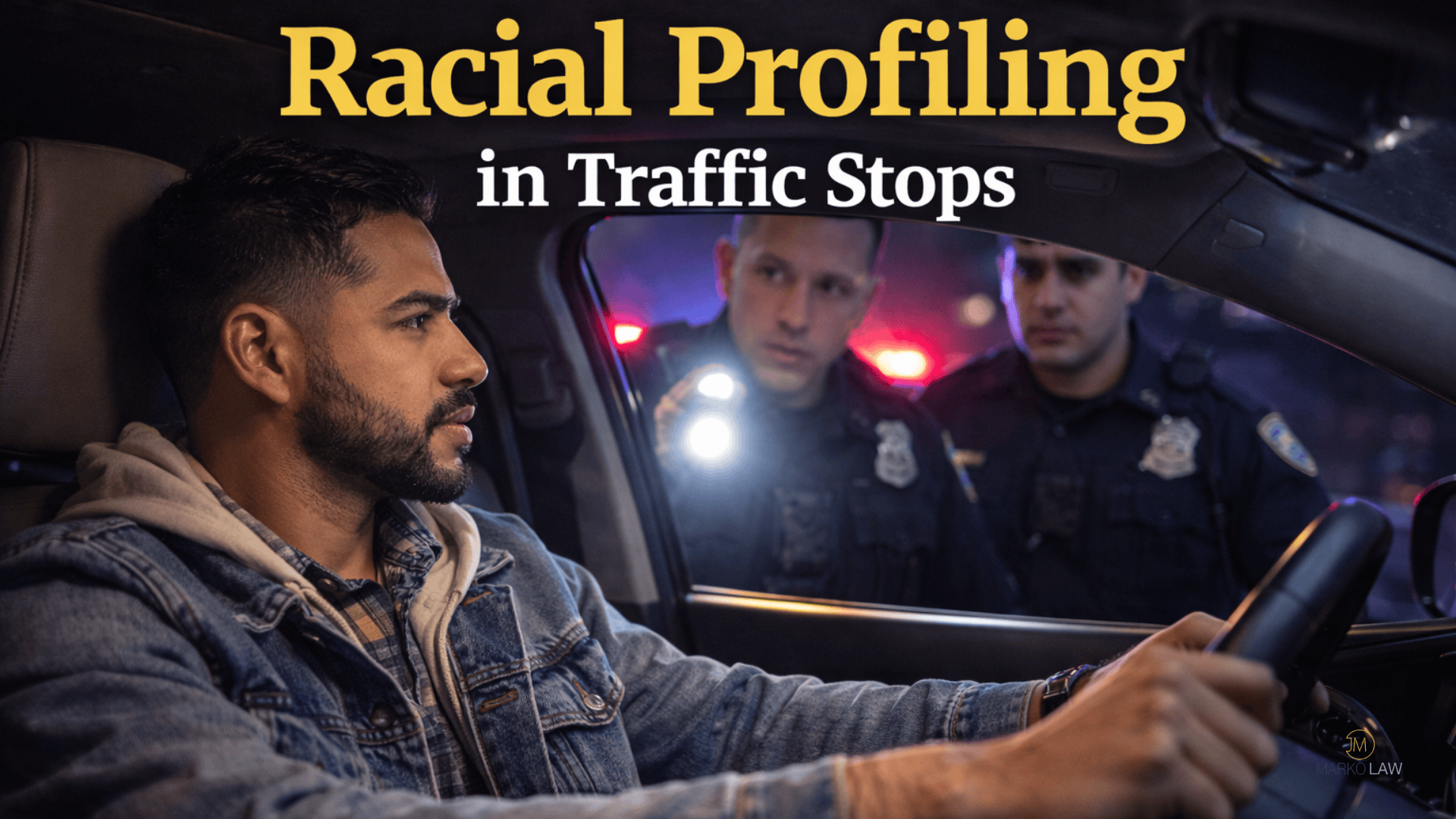When people think of car accidents, they picture broken bones, blood, and wreckage. But some of the most painful and long-lasting injuries leave no visible scars. Post-Traumatic Stress Disorder (PTSD) is one of them—and it’s more common than you think.
Crashes don’t just damage bodies. They shake people to their core. Waking up in a panic, replaying the impact over and over, refusing to get back behind the wheel, isolating from loved ones—these are not just signs of stress. They’re symptoms of real trauma.
At Marko Law, we see what others miss. Clients walk into our office months after a crash, still struggling to sleep, still avoiding driving, still living in fear—and still hearing insurance companies say, “There’s no injury here.” That’s unacceptable. And it’s legally wrong.
Here’s the truth: PTSD is a recognized medical condition, not a weakness or an excuse. It is serious, it is debilitating, and Michigan law allows you to take legal action when it affects your life—just like any other injury caused by someone else’s negligence.
Can You File a Personal Injury Claim for PTSD in Michigan?
When Emotional Injuries Are Legally Recognized
Most commonly, PTSD claims are brought in connection with a physical injury. If you were in a car crash and suffered both bodily harm and psychological trauma, your case fits the typical mold. Michigan courts and insurance companies are more likely to take emotional injuries seriously when they’re clearly linked to physical damage.
That said, you don’t have to be visibly injured to be suffering. The law allows PTSD and other emotional distress claims to stand on their own—but only under specific and often difficult circumstances. This typically requires showing that the emotional harm is severe, medically documented, and directly caused by the crash or another negligent act.
What You Need to Prove
To pursue a PTSD claim in Michigan, especially when emotional trauma is the primary injury, you will need:
- A diagnosis from a licensed mental health professional (psychiatrist, psychologist, or licensed clinical therapist)
- Documentation showing consistent, ongoing treatment
- Evidence that the trauma was caused by the crash (e.g., timing of symptoms, patient history)
- Proof that the emotional impact has led to a serious impairment of your life
In high-impact collisions, rollover crashes, or incidents involving loss of consciousness or a fatality, the psychological toll can be devastating. In those cases, the emotional injury may be just as significant—or more so—than the physical ones.
Stand-Alone Emotional Distress Claims: The Legal Bar Is Higher
Michigan law does permit what are called "stand-alone" emotional distress claims, but courts apply a stricter standard. These claims typically fall under the tort of “negligent infliction of emotional distress” or in rare cases, “intentional infliction of emotional distress.” The requirements here are tough:
- The trauma must be severe and debilitating
- It must result from another person’s grossly negligent or reckless conduct
- It often requires corroborating testimony and expert medical evidence
No-Fault Law and PTSD Claims
Michigan operates under a No-Fault auto insurance system, which means that after a car crash, your own insurance company pays your medical expenses and lost wages—no matter who caused the accident. This system is designed to streamline care and prevent delays. But when it comes to serious, lasting injuries like PTSD, the No-Fault system has strict limits.
What No-Fault Covers
If you’ve been diagnosed with crash-related PTSD, your Personal Injury Protection (PIP) benefits may cover:
- Psychiatric care – including visits with licensed psychologists or psychiatrists
- Therapy – such as cognitive behavioral therapy (CBT) or trauma counseling
- Prescription medication – including antidepressants or anti-anxiety meds
- Lost wages – if your PTSD prevents you from returning to work temporarily
This is true regardless of fault. Whether you caused the crash or someone else did, your PIP benefits should kick in if you seek proper medical attention and provide documentation.
But There’s a Catch: No Pain and Suffering Compensation Under No-Fault
Here’s where the system falls short: PIP does not compensate you for pain and suffering, emotional anguish, or loss of enjoyment of life. So even if your PTSD has completely changed your day-to-day reality, you won’t receive anything for it under No-Fault unless you pursue a separate lawsuit.
To claim compensation for those deeper harms, you need to step outside the No-Fault system and file a third-party personal injury lawsuit against the at-fault driver. But doing so requires meeting Michigan’s legal threshold for serious injury—something we’ll break down next.
When You Can File a Lawsuit for Emotional Trauma
The “Serious Impairment of Body Function” Standard
Michigan’s auto insurance law (specifically, MCL 500.3135) requires injured individuals to prove they’ve suffered a “serious impairment of body function” before they can sue for noneconomic damages. While this term may sound like it only applies to physical injuries, courts have recognized that mental and emotional trauma, including PTSD, can qualify—if the impact is substantial enough.
PTSD can meet this legal standard if it disrupts key areas of your life, such as:
- Daily living – Difficulty sleeping, bathing, eating, or driving without panic or flashbacks
- Work performance – Inability to focus, fear of commuting, or complete inability to return to your job
- Interpersonal relationships – Withdrawal from family, loss of intimacy, irritability, or social isolation
It’s not about a single bad day. It’s about ongoing disruption, the kind that changes how you live and interact with the world.
Medical Evidence Is Key
Insurance companies and defense attorneys will challenge emotional trauma claims at every turn. That’s why your case must be backed by credible, consistent medical documentation, including:
- A formal diagnosis from a licensed psychiatrist or psychologist
- A treatment plan or ongoing therapy records
- Notes detailing how PTSD is affecting your mental, emotional, and functional well-being
Proving PTSD in Court
Medical Documentation: The Foundation of Your Case
Courts rely heavily on objective, consistent medical evidence to evaluate PTSD claims. That includes:
- Psychiatric evaluations and diagnoses
- Progress notes from therapy sessions
- Medication records
- Treatment logs showing frequency, duration, and types of therapy
Your attorney will use this documentation to establish both the existence of the condition and its impact on your life. The more thorough the records, the more persuasive your case becomes.
Testimony That Validates Your Trauma
In addition to medical records, live testimony strengthens your claim by putting a human voice behind the paperwork:
- Mental health professionals (psychiatrists, psychologists, licensed therapists) can explain your diagnosis, treatment, and prognosis in clinical terms.
- Social workers or counselors may offer insight into behavioral impacts or safety concerns.
- Family members and close friends can testify about the before-and-after—how your behavior, mood, and daily life have changed since the crash.
This type of testimony humanizes your experience. It helps a jury see the full picture, not just a list of symptoms.
Your Voice Matters: Personal Impact Statements
One of the most powerful pieces of evidence? Your own words. A well-crafted personal impact statement can detail:
- How PTSD affects your ability to function
- What activities or relationships you’ve lost
- The emotional toll of reliving the crash every day
Courts want to hear the truth—from you.
Expert Witnesses: Translating Trauma for a Jury
In many cases, your attorney may bring in expert witnesses—medical professionals who are not your treating doctors but who specialize in PTSD. Their role is to:
- Educate the jury on what PTSD is
- Explain how trauma affects the brain and behavior
- Validate the seriousness of your condition using medical standards
Why this matters: Jurors may not understand PTSD, or they may carry harmful misconceptions. Expert testimony bridges the gap between science and empathy—and can turn skepticism into support.
Emotional Trauma Deserves Justice
The wounds you can’t see are often the ones that hurt the most. PTSD isn’t just in your head—it’s in your daily life, your sleep, your relationships, your work, and your future. It is real. It is painful. And Michigan law should recognize it for what it is: a serious personal injury.
If you’re living with trauma after a crash, you don’t have to suffer in silence—and you don’t have to take on insurance companies or legal hurdles alone.
At Marko Law, we take psychological injuries just as seriously as physical ones. We fight for the full picture of justice—your health, your peace of mind, and your future. Our attorneys understand the emotional toll these injuries take, and we know how to build cases that make juries and insurers pay attention.
Contact Marko Law for a Free Case Evaluation
📞 Phone: +1-313-777-7777
📍 Main Office: 220 W. Congress, 4th Floor, Detroit, MI 48226
🌐 Website: www.markolaw.com









.svg)








